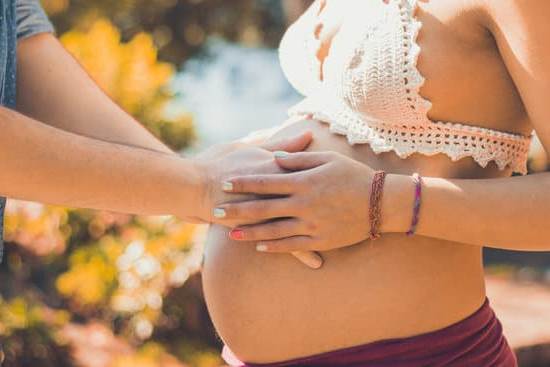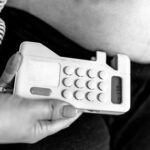Pregnancy is a miraculous journey for many women, but the early signs and symptoms can often be confusing or even overwhelming. One of the most common questions asked by expectant mothers is, “How soon does pregnancy symptoms start?” This article aims to shed light on this question and provide a comprehensive overview of the early signs of pregnancy.
Understanding early pregnancy symptoms is crucial for women who are trying to conceive or suspect that they may be pregnant. These symptoms can vary from woman to woman, but there are some common indicators that may signal the beginning of a pregnancy. From nausea and fatigue to breast tenderness and mood swings, recognizing these signs can help women prepare for the changes their bodies will undergo in the coming months.
For many women, pregnancy symptoms typically start after conception occurs. This usually happens within a week or two after fertilization when the embryo attaches itself to the uterus. However, some women may experience certain symptoms even before they miss their period. It’s important to be aware of these early signs and consult with a healthcare provider if you suspect that you may be pregnant.
What Are Early Pregnancy Symptoms?
Pregnancy symptoms can vary greatly from woman to woman, and some may experience them sooner than others. While each pregnancy is unique, there are some common early signs that indicate a potential pregnancy. It’s important to recognize these symptoms as they could be the first indicators of a positive result on a pregnancy test.
Some typical early pregnancy symptoms include:
- Missed period: One of the most obvious signs of pregnancy is a missed period. This is usually the first indication that prompts many women to suspect they may be pregnant.
- Nausea and vomiting: Often referred to as morning sickness, nausea and vomiting can start as early as two weeks after conception for some women.
- Fatigue: Feeling constantly tired or exhausted is another common symptom experienced by pregnant women in the early stages of pregnancy.
It’s important to note that not all women will experience the same symptoms, and some may not experience any at all. However, being aware of these common early signs can help you determine if it might be time to take a pregnancy test.
Factors such as individual physiology, hormone levels, and lifestyle habits can influence when pregnancy symptoms may start for each woman. Understanding these factors can help you better prepare for the possibility of early signs of pregnancy and know when to seek confirmation through a pregnancy test.
How Soon Do Pregnancy Symptoms Start After Conception?
Pregnancy symptoms can vary from woman to woman, but they typically start to appear after conception. In general, early pregnancy symptoms can begin as early as one week after conception. This is because once the fertilized egg implants itself into the uterus, it starts releasing hormones that signal the body of a potential pregnancy. However, some women may not experience any symptoms until a few weeks later.
One of the first signs of pregnancy is often a missed period, which occurs about two weeks after ovulation and conception. This is usually followed by other common early pregnancy symptoms such as fatigue, breast tenderness, nausea or morning sickness, increased urination, and mood swings. These symptoms are caused by hormonal changes in the body due to the developing pregnancy.
It is important to note that not every woman will experience all of these symptoms, and some may have different or milder signs of pregnancy. Additionally, factors such as individual health conditions, lifestyle habits, stress levels, and genetic predispositions can influence when and how intensely these symptoms manifest. If you suspect you may be pregnant and are experiencing any unusual symptoms, it is best to consult with your healthcare provider for proper evaluation and guidance on next steps.
Common Early Pregnancy Symptoms to Look Out For
During the early stages of pregnancy, there are several common symptoms that women may experience. These symptoms can vary from person to person, but some of the most typical signs of pregnancy include nausea or morning sickness, fatigue, breast tenderness, frequent urination, and food cravings or aversions. It is essential to note that not every woman will experience all of these symptoms, and some women may not experience any at all.
Nausea or morning sickness is often one of the first signs of pregnancy and can start as early as two weeks after conception. This symptom is characterized by feelings of queasiness or vomiting, usually in the morning but can occur at any time of day.
Fatigue is another common symptom that many pregnant women experience due to hormonal changes in the body. Feeling tired and worn out, even after a full night’s sleep, is a typical early sign of pregnancy.
Breast tenderness is also a prevalent early symptom of pregnancy due to hormonal changes preparing the body for breastfeeding. Women may notice that their breasts feel tender or sore to the touch during this time.
Frequent urination is another common symptom that occurs early in pregnancy because an increase in blood flow causes the kidneys to produce more urine. Additionally, some women may develop food cravings or aversions during early pregnancy, where they suddenly have strong desires for certain foods or cannot stand the thought of others.
Factors That Influence the Onset of Pregnancy Symptoms
When it comes to pregnancy, the onset of symptoms can vary from woman to woman. Several factors can influence how soon a woman may begin to experience signs of pregnancy after conception. Here are some key factors that play a role in determining when early pregnancy symptoms may start:
- Overall health and lifestyle: Women who are generally healthy and maintain a balanced lifestyle may notice pregnancy symptoms sooner than those who have underlying health issues or unhealthy habits.
- Hormonal levels: The levels of hormones such as progesterone, estrogen, and human chorionic gonadotropin (hCG) can impact when pregnancy symptoms start. Higher hormone levels may lead to earlier onset of symptoms.
- Individual sensitivity: Every woman’s body is unique, and some may be more sensitive to hormonal changes than others. This can result in experiencing pregnancy symptoms sooner or later than expected.
It’s important to note that while these factors can provide some insight into when pregnancy symptoms may start, there is no exact science to predict the exact timing for every woman. Each pregnancy is different, and some women may not experience any noticeable symptoms until weeks into their pregnancy.
If you are trying to conceive or suspect you may be pregnant, it’s essential to stay informed about early pregnancy signs but also be prepared for variations in individual experiences.
- Overall health and lifestyle
- Hormonal levels
- Individual sensitivity
Is It Possible to Experience Pregnancy Symptoms Before a Missed Period?
One of the most common questions among women who suspect they might be pregnant is whether it is possible to experience pregnancy symptoms before missing a period. The answer is yes, it is possible. While a missed period is often seen as one of the first signs of pregnancy, some women may start noticing early symptoms even before their period is due.
The timing of pregnancy symptoms can vary from woman to woman. Some may start experiencing symptoms as early as 1-2 weeks after conception, while others may not notice any changes until a few weeks later. This variation in timing can be attributed to individual differences in hormone levels and how the body responds to pregnancy.
| Early Pregnancy Symptom | Description |
|---|---|
| Nausea | Feeling queasy or nauseous, often referred to as morning sickness |
| Frequent Urination | Having to urinate more frequently than usual due to hormonal changes |
| Fatigue | Feeling extremely tired or fatigued, even with plenty of rest |
When Should You Take a Pregnancy Test if You Suspect Pregnancy Symptoms?
Timing of Pregnancy Tests
One of the most common questions that many women have when they suspect they may be pregnant is, “When should I take a pregnancy test?” The timing of taking a pregnancy test can significantly impact its accuracy. Most home pregnancy tests work by detecting the hormone hCG (human chorionic gonadotropin) in your urine.
This hormone is produced once the fertilized egg implants in the uterus. For the most accurate results, it is recommended to wait until you have missed your period before taking a test.
Early Testing
While some home pregnancy tests claim to detect pregnancy up to six days before your missed period, the accuracy may vary. Testing too early can lead to false negatives as not enough hCG may be present in your urine to be detected by the test. If you are anxious and cannot wait until after your missed period, it is advisable to use an early detection test and follow the instructions carefully for best results.
Confirming Results
If you suspect you are experiencing early pregnancy symptoms but receive a negative result from a home pregnancy test, it may be beneficial to wait a few more days and then retest. Oftentimes hCG levels continue to rise rapidly during early pregnancy, so waiting and retesting can provide more accurate results. If you still believe you may be pregnant despite negative results from multiple tests, it is recommended to consult with your healthcare provider for further evaluation.
Coping With Early Pregnancy Symptoms
Stay Well-Hydrated
One common early pregnancy symptom is frequent urination. This occurs due to the increased blood flow to your kidneys, which causes them to produce more urine. To cope with this symptom, make sure to stay well-hydrated throughout the day. While it may seem counterintuitive, drinking plenty of water can actually help reduce the frequency of trips to the bathroom by keeping your bladder flushed out and preventing dehydration.
Listen to Your Body
Pregnancy symptoms can vary from person to person, so it’s important to listen to your body and pay attention to how you’re feeling. If you’re experiencing nausea, for example, try eating smaller, more frequent meals throughout the day to help minimize feelings of sickness. If you’re feeling fatigued, don’t push yourself too hard and make sure to get plenty of rest. Taking naps when needed can also help combat early pregnancy fatigue.
Seek Support
Dealing with early pregnancy symptoms can be overwhelming, especially if you’re experiencing a range of uncomfortable sensations all at once. Don’t be afraid to seek support from loved ones or join online forums or support groups where you can connect with others who are going through similar experiences.
Talking about your symptoms and concerns with others can provide emotional support and reassurance during this exciting yet challenging time in your life. Remember, you’re not alone in this journey towards motherhood.
Conclusion
In conclusion, understanding the early signs of pregnancy is crucial for women who are trying to conceive or suspect they may be pregnant. The question of “how soon does pregnancy symptoms start” is a common one among those on the journey to motherhood. While every woman’s experience may differ, most early pregnancy symptoms can begin as early as a few days after conception.
It is important to be aware of the common early pregnancy symptoms such as fatigue, breast tenderness, nausea, and frequent urination. These signs can vary in intensity and duration from woman to woman. Factors like individual health, genetics, and stress levels can also influence when these symptoms start and how severe they may be.
If you suspect you are experiencing early pregnancy symptoms, it is advisable to take a pregnancy test after a missed period for more accurate results. However, some women may notice signs even before a missed period due to implantation bleeding or heightened hormonal changes. Remember to seek medical advice if you have concerns about your symptoms or need support in coping with the physical and emotional changes that come with early pregnancy.
Frequently Asked Questions
What Are the Pregnancy Symptoms at 1 Week?
Pregnancy symptoms at 1 week may not be very noticeable, as it is still very early in the pregnancy. Some women may experience mild cramping or spotting, but these symptoms can also be attributed to other factors.
How Quickly Do You Get Signs of Pregnancy?
Signs of pregnancy can vary from woman to woman, but some may start experiencing them as early as one to two weeks after conception. Early signs include fatigue, breast tenderness, nausea, and a heightened sense of smell.
How Soon Can I Know if I Am Pregnant?
Most home pregnancy tests claim to provide accurate results around the time of your missed period, which is typically two weeks after conception. However, some sensitive tests may be able to detect pregnancy hormone levels even earlier. If you suspect you are pregnant, seeking confirmation from a healthcare provider is the most reliable way to know for sure.

Welcome to my fertility blog. This is a space where I will be sharing my experiences as I navigate through the world of fertility treatments, as well as provide information and resources about fertility and pregnancy.





